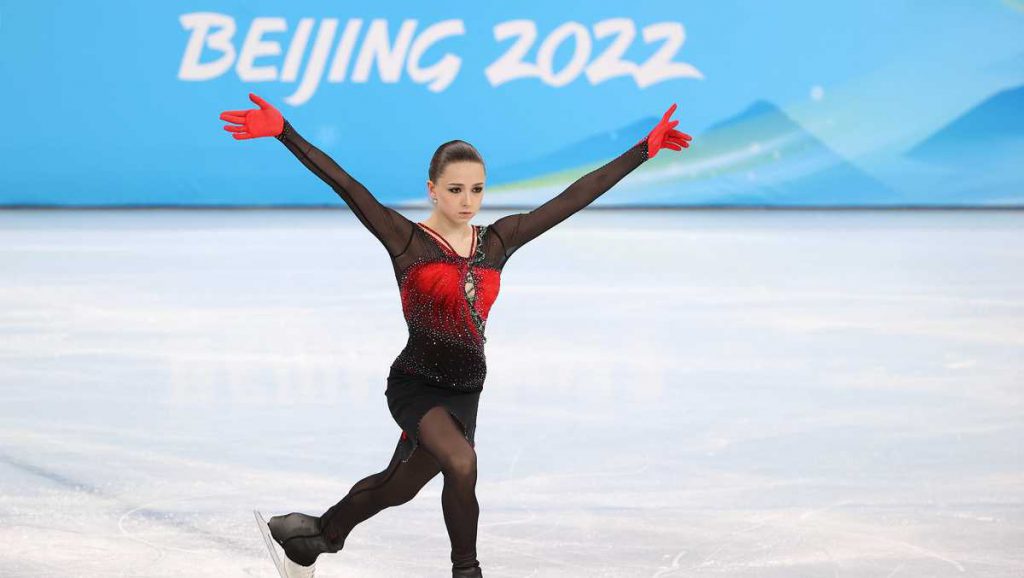The International Testing Agency (ITA) revealed Friday that Russian teenage figure skater Kamila Valieva failed a drug test done in December prior to the Beijing 2022 Winter Olympics.
Fifteen-year-old Valieva, a breakout star of the Games who helped the Russian Olympic Committee (ROC) win gold in Monday’s figure skating team event, was permitted to participate despite testing positive for the prohibited cardiac medicine trimetazidine, which is routinely used to treat angina, according to the ITA.
The failed test was first discovered during the Winter Olympics, and it is uncertain whether the medal will be removed as a result of the drug test dispute.
The controversy is still delaying the distribution of medals to all three teams, with Team USA receiving silver and Team Japan receiving bronze.
“The decision on the results of the ROC team in the Team Figure Skating event can be taken … only after a final decision on the full merits of the case has been taken,” the ITA stated.
The Court of Arbitration for Sport (CAS) will hear the appeal, with a judgment needed before the figure skater’s next competition, the women’s singles short program, on Tuesday, in which she is favored to win gold.
According to the ITA, the International Olympic Committee (IOC) will oppose the Russian Anti-Doping Agency’s (RUSADA) decision to lift the skater’s provisional ban at that hearing.
In response to the scandal, the ROC stated that Valieva had “repeatedly passed doping tests” while already in Beijing, and that it is taking steps to ensure that Valieva’s “honestly won” gold is preserved.
“The results of a positive doping test for an athlete do not apply to the Olympic Games period. Simultaneously, the athlete passed many drug tests before and after December 25, 2021, including while competing in the figure skating event in Beijing. All of the outcomes are bad “According to the ROC statement.
“The Russian Olympic Committee is taking comprehensive measures to protect the rights and interests of the members of the ROC Team, and to keep the honestly won Olympic gold medal.”
Valieva’s drug sample was obtained on December 25 during the Russian Figure Skating Championships in Saint Petersburg, according to the ITA, which is in charge of the Beijing Winter Olympics’ anti-doping program.
A laboratory in Sweden did not notify the discovery of a prohibited chemical until February 8, one day after the ROC won gold in the team event in Beijing.
Valieva tested positive for trimetazidine, a medicine used to treat angina, a cardiac ailment that causes chest discomfort owing to inadequate blood flow to the heart, according to the ITA. It is prohibited by the World Anti-Doping Agency (WADA).
Hormone and metabolic modulators are a class of medications that WADA has prohibited because to evidence of athletes using them to boost performance, as they can increase blood flow and endurance.
Valieva received an instant temporary suspension from Russia’s anti-doping organization, which prevents athletes from participating in any sport.
